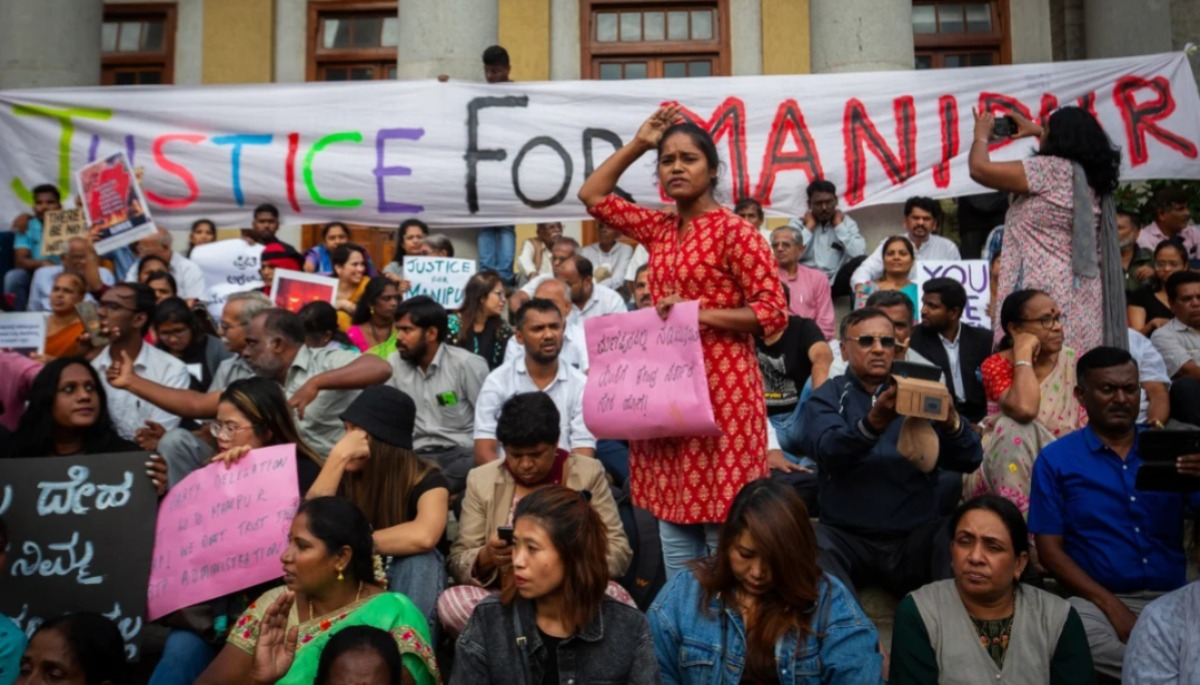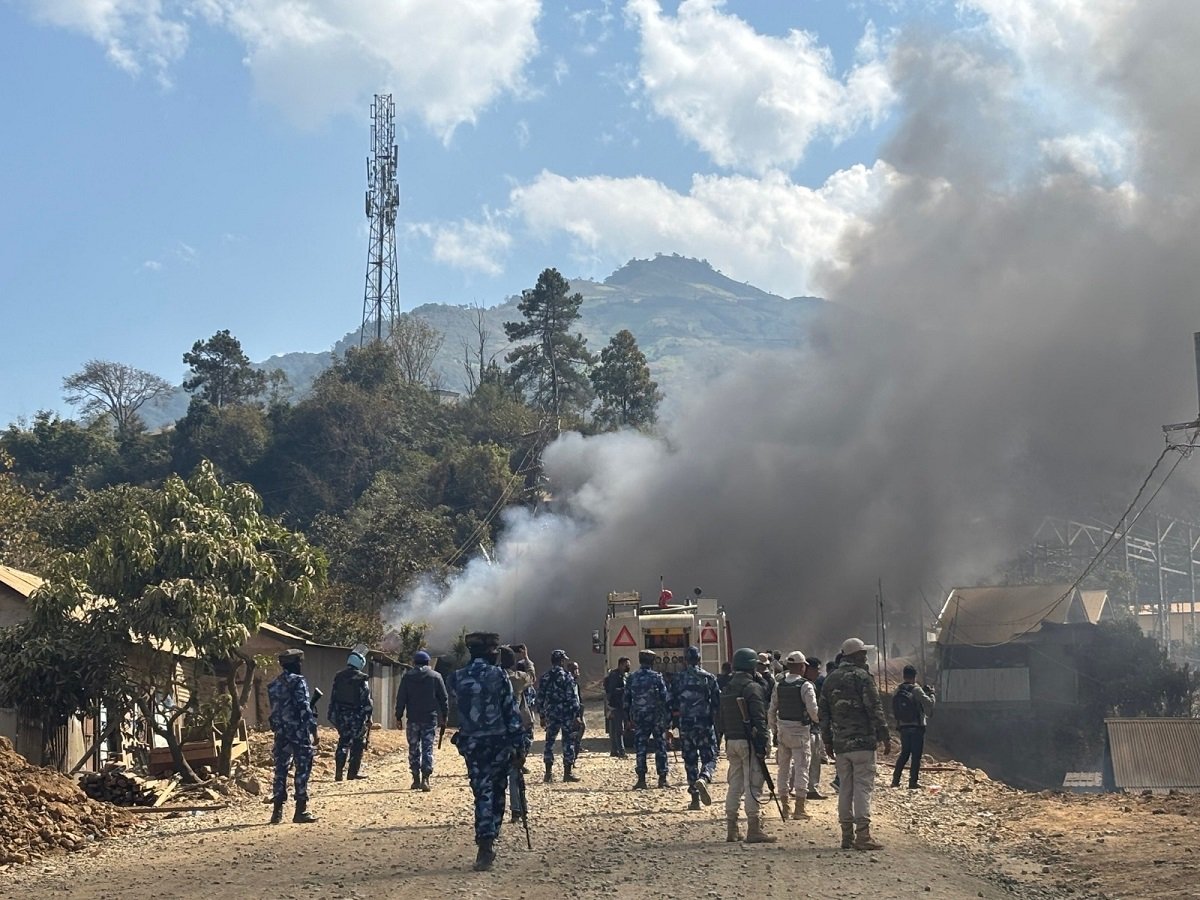Cloth dividers, each a tiny curtain signifying a space of sorrow, dignity, and resiliency, hang between families at a small relief camp within the Ideal Girls’ College in Akampat, Imphal East. Over 100 families have sought safety here, the majority of whom are from the nearby border town of Moreh, which is about 100 kilometers distant. Following the outbreak of ethnic violence in Manipur on May 3, 2023, they are among the tens of thousands of people who have been uprooted.
The displaced are no longer merely surviving after their lives were upended more than two years ago. Their dream is to return home. According to Khuraijam Khamba, an internally displaced person from Moreh, who shared his tale, his business was destroyed, everyone’s homes were burned, and everything was lost. “Even so, we still wish to reside in Moreh as we are its citizens. It is where we were born. It was also where my parents lived. That’s where we want to stay. “This conflict and this violence will not lead to anything,” he declared.
“The Kuki people must be going through just as much suffering as we are. I would like to convey to the Kukis that the elder Kukis who had resided here must also be in a lot of suffering. Therefore, fighting will not result in anything positive. Khamba continued, “It would be much better if we could go back to our previous peaceful way of life.
Another Moreh refugee, Khumanthem Achou, called on authorities to give the needs of people living in the camps top priority. “I ask the government to help us return to Moreh, where we wish to reside, and to give priority to our most pressing needs, which are health and education. Although there has been some improvement since President’s Rule was implemented, he stated, “I still ask the government to let me return to Moreh and reopen my business there.”
More than 50,000 individuals have been displaced since the conflict. While Kuki-Zo villages from the valley relocated to relief camps in the hills, Meiteis from the hills fled to the valley. The government has offered subsistence allowances, free food, healthcare, and basic support. Although there is less active violence now, communities are nonetheless divided by mistrust and fear. Months of turmoil and political upheaval have left infrastructure devastated, roads still clogged, and crucial supplies scarce.





